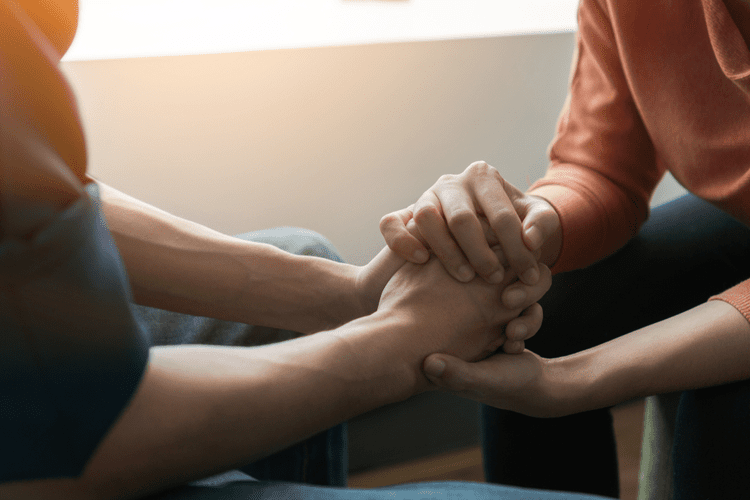12 Things That Happen When You Quit Drinking
Making an informed decision to care for yourself and to be aware is part of the recovery journey that leads to self-discovery. Most people feel this way at some point in their why can’t i control my drinking journey, and you should not condemn yourself if you are experiencing these feelings. Instead, try acknowledging your feelings and being kind to yourself. If you’re simply looking to speak to someone on the phone or chat online for more advice on your own or someone else’s drinking, get in touch with Drinkchat or Drinkline.
- It’s also involved in four out of 10 fatal falls and traffic crashes, as well as suicides.
- Therapy can help you understand why you drink and learn new habits so you can live a healthy lifestyle that doesn’t rely on alcohol as a crutch.
- This guide has lots of practical tips on how you can stop drinking and the benefits you can expect.
- Others need medical supervision in order to withdraw from alcohol safely and comfortably.
Reach out for support

You’re likely to start by seeing your primary health care provider. If your provider suspects that you have a problem with alcohol, you may be referred to a mental health provider. By cutting alcohol out of your life completely, you may notice a number of improvements to the way you look and feel. Among other things, you might find you have more energy, that you’re sleeping better, or that you’ve lost a fair amount of weight. “Why can’t I just quit even when I know that alcohol is ruining my life?” This is the million-dollar question that boggles so many daily drinkers’ minds.
A look at diastolic blood pressure

Pursuing limited alcohol consumption, like any other major life pursuit, is not about external judgment or societal norms; it’s about aligning your actions with your emotional core. For example, mothers, a frequently targeted group for marketing all products, are now encouraged to share their love for alcohol on t-shirts, mugs, and even children’s clothing. In our society, a mother describing how the stress of raising kids led to hefty wine consumption is as acceptable as tired jokes about burning dinner or useless husbands.
- Cutting down or stopping drinking is usually just the beginning, and most people will need some degree of help or a long-term plan to stay in control or completely alcohol free.
- If you can’t control it, it may lead to a condition called alcohol use disorder.
- Alcohol plays a role in at least half of all serious trauma injuries and deaths from burns, drownings, and homicides.
- Maybe you don’t think you depend on alcohol exactly, but you still wonder whether you might be drinking too much.
- But if you’re living with alcohol use disorder, drinking is more than a habit.
Physical symptoms
Theories suggest that for certain people drinking has a different and stronger impact that can lead to alcohol use disorder. If we chose modest consumption, identifying the proper environments and reasons to reach for a drink can feel empowering. Perhaps a glass of wine during a conversation with a friend is a pleasure we want to allow ourselves and helps us feel connected and engaged.
We’re not just logical beings; we are emotional creatures. When it comes to cutting back on drinking, tapping into the psychological needs behind your choices can be a game-changer. Once we have a clearer picture of our reasons for using alcohol, we get to decide when, where, and how much we use, with added insight. I’ve heard drinking described as “a cup of extroversion,” providing confidence in situations that otherwise would trigger awkwardness, embarrassment, or even anxiety. The avoidance common in the socially anxious may be initially overcome through alcohol, but requires repeated doses if an individual wants to re-engage in the future. They may be hard to come by if you are not in that state of mind, such as sustainable money, a car, a house, and maybe even, if you so decide, a family.
Alcohol use disorder is a pattern of alcohol use that involves problems controlling your drinking, being preoccupied with alcohol or continuing to use alcohol even when it causes problems. This disorder also involves having to drink more to get the same effect or having withdrawal symptoms when you rapidly decrease or stop drinking. Alcohol use disorder includes a level of drinking that’s sometimes called alcoholism. Adult partners may perform a ritual of a cocktail while they sit down together to discuss the day. Or friends may meet up without any clear agenda except to drink wine and talk.
Make a table like the one below, weighing the costs and benefits of drinking to the costs and benefits of quitting. Another clue that can be an indication of an unhealthy relationship with alcohol is if you make “rules” around drinking. If you feel comfortable doing so, discuss your challenges with your primary healthcare professional. Finding a therapist can also be a great starting point if you’re uncomfortable opening up to your healthcare professional. Exploring, in writing, what you find difficult and when you most want to drink can help you notice patterns that offer more insight into your alcohol use.
It’s important you make contact with your local treatment service to arrange a safe, medically supervised detox. For example, you would experience cognitive dissonance if you are a daily drinker and, at the same time, believe that alcohol is bad for your health and you should stop drinking. Many people with alcohol use disorder hesitate to get treatment because they don’t recognize that they have a problem. An intervention from loved ones can help some people recognize and accept that they need professional help. If you’re concerned about someone who drinks too much, ask a professional experienced in alcohol treatment for advice on how to approach that person.

Leave a Reply
You must be logged in to post a comment.